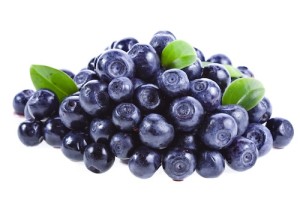New Zealand: Bumper blueberry crop expected after slow start
The bulk of Waikato growers’ blueberry crop should be starting to hit supermarket shelves in time for Christmas after a sluggish start to the season.
Cooler than normal summer nights had pushed back ripening of some varieties by up to 10 days, Blueberries New Zealand chairman Dan Peach said.
But he was confident this would not affect supply coming into the festive season.
“The fruit that’s there is looking good and tasting good and there will be more available as the weeks progress.”
So far this summer, blueberries had appeared in limited amounts on supermarket shelves and were quite expensive.
This was simply due to supply and demand, and he expected the price to drop as more fruit became available.
“The availability of fruit coming into Christmas week I’m sure will be strong and there’ll be plenty of fruit. There’ll be no issues of supply.”
The cold winter had set up a large blueberry crop for this season, Warrick Macdonald of Blueberry Country said.
“It was a nice cold winter and that really helps the blueberries get their buds set. And looking at what we have got on the bushes at the moment, it looks like it’s going to be a really good season for us.”
Blueberry Country is New Zealand’s largest commercial blueberry grower. Macdonald said it had been a normal season and most of their varieties were on track to be ready before Christmas.
The heavy crop meant some varieties were slower to ripen and the fruit took longer to size up, Macdonald said.
“But to be honest, it’s a pretty typical season. Timing-wise, we’re looking very similar to previous years,” he said.
He doubted the recent hail storms in Nelson which affected New Zealand’s largest boysenberry crop would affect blueberry sales or prices. The success of blueberry growers mirrored the strawberry growing season, he said.
“If they have a bad season, then we notice a difference in demand for our product. From our perspective, if the strawberry growers are going good, hopefully it means we’re going good.”
The recall of Fruzio frozen berries that were connected with a potential risk of hepatitis A has also had no effect on sales, Peach said. It added weight to those arguing for mandatory country of origin labelling of food products.
“I think in the short term it’s increased demand for locally grown produce, both fresh and frozen. All you can do is encourage people to grab it when they can.”
12/17/2015
Source: Stuff.co.nz






